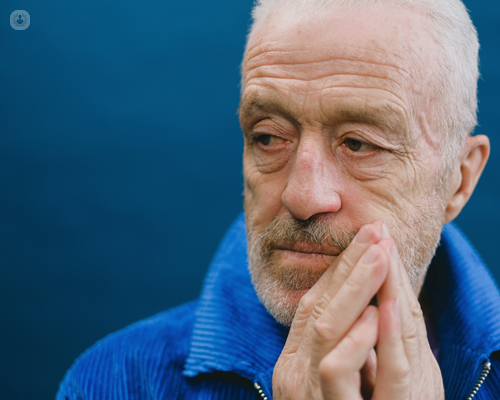What is the patient pathway in pancreatic cancer?
Autore:Pancreatic cancer is a serious and often challenging condition to diagnose and treat. Understanding the patient pathway—from initial symptoms to treatment and follow-up - is crucial for patients and their families.
This pathway typically involves several stages, including diagnosis, treatment planning and ongoing care. Here to provide a detailed look at this, is leading medical oncologist Dr Shivan Sivakumar.

What are the initial symptoms and diagnosis?
Pancreatic cancer often presents with vague symptoms, which can make early diagnosis difficult. Common symptoms include:
- Abdominal pain
- Jaundice (yellowing of the skin and eyes)
- Unexplained weight loss
- Loss of appetite
- Nausea and vomiting
- New-onset diabetes
When a patient presents with these symptoms, a general practitioner (GP) will conduct a thorough medical history and physical examination. If pancreatic cancer is suspected, the GP will refer the patient to a specialist for further investigation.
What diagnostic tests are used in the patient pathway?
Several diagnostic tests are used to confirm the presence of pancreatic cancer:
- Blood tests: These can detect markers such as CA 19-9, which may be elevated in pancreatic cancer.
- Imaging studies: Ultrasound, CT scans, MRI and PET scans are commonly used to visualise the pancreas and surrounding structures.
- Endoscopic procedures: An endoscopic ultrasound (EUS) or endoscopic retrograde cholangiopancreatography (ERCP) can provide detailed images and allow for tissue biopsies.
- Biopsy: A definitive diagnosis is made by examining a tissue sample under a microscope.
What comes next? Is there a treatment plan?
Once a diagnosis is confirmed, staging is performed to determine the extent of cancer spread. Staging involves imaging studies and possibly surgical exploration. Pancreatic cancer is typically staged from I to IV, with Stage I being localised and Stage IV indicating distant spread.
Treatment planning involves a multidisciplinary team (MDT) of specialists, including:
- Surgeons
- Oncologists
- Radiologists
- Gastroenterologists
- Pathologists
The treatment plan is tailored to the patient's specific stage and overall health.
What are the treatment options in the pathway?
Treatment options for pancreatic cancer include:
- Surgery: Potentially curative if the cancer is localised. The most common surgery for tumours in the head of the pancreas, is The Whipple procedure (pancreaticoduodenectomy).
- Chemotherapy: Used to shrink the tumour before surgery (neoadjuvant therapy), after surgery (adjuvant therapy), or as the primary treatment in advanced stages.
- Radiotherapy: Often combined with chemotherapy to enhance its effectiveness.
- Targeted Therapy: Drugs that specifically target cancer cells with less harm to normal cells.
- Palliative Care: This focuses on relieving symptoms. It improves quality of life for patients with advanced cancer.
Is there a post-treatment follow-up?
After treatment, regular follow-up is essential to monitor for recurrence and manage any side effects. Follow-up typically includes:
- Regular physical exams
- Blood tests, including tumour markers
- Imaging studies as needed
Patients may also receive supportive care, including nutritional support, pain management, and psychological counselling.
How do I go about living with pancreatic cancer?
Living with pancreatic cancer involves managing ongoing treatment and side effects. Patients are encouraged to:
- Maintain a healthy diet
- Stay physically active
- Seek support. Family, friends and cancer support groups can all help.
- Communicate openly with their healthcare team about any new symptoms or concerns
The patient pathway in pancreatic cancer is complex and requires a coordinated effort from a multidisciplinary team. Early detection and a tailored treatment plan can significantly improve outcomes and quality of life for patients.
Are you about to go ahead with pancreatic cancer treatment? Arrange a consultation with Dr Sivakumar to discuss your options, via his Top Doctors profile.


